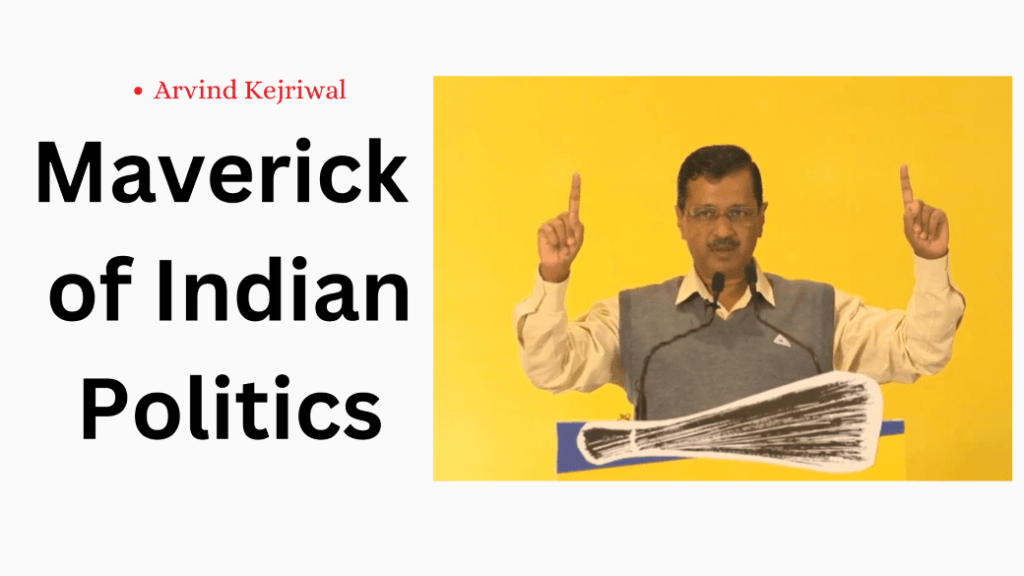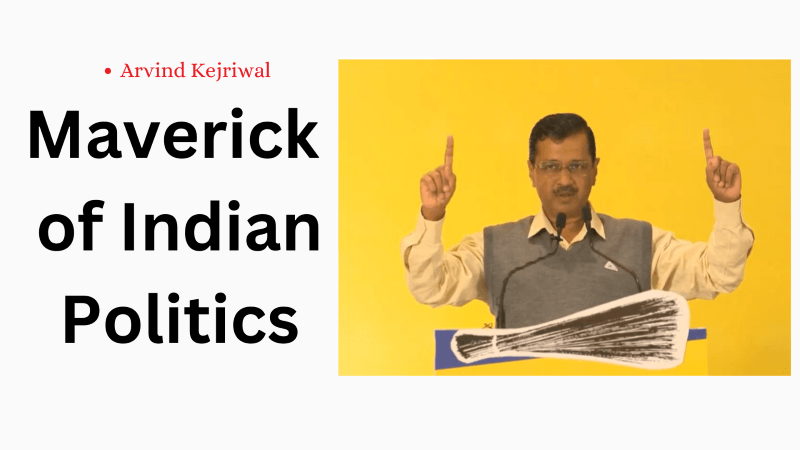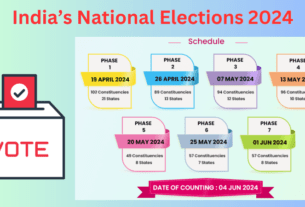Arvind Kejriwal, the firebrand leader and Chief Minister of Delhi, is a name that evokes a spectrum of emotions and opinions across the Indian political landscape. From being an anti-corruption crusader to transforming into a pragmatic administrator, Kejriwal’s journey is a fascinating narrative of ambition, idealism, and the complexities of governance.

The Early Days:
Kejriwal’s foray into politics wasn’t conventional. Born on August 16, 1968, in Siwani, Haryana, he graduated from the Indian Institute of Technology (IIT) Kharagpur as a mechanical engineer. His stint in the Indian Revenue Service (IRS) shaped his worldview, exposing him to the rampant corruption ingrained in the system. This experience fueled his resolve to bring about change, eventually leading to the formation of the Aam Aadmi Party (AAP) in 2012.
The Anti-Corruption Crusader:
Kejriwal burst onto the national scene as a leading figure in the anti-corruption movement alongside Anna Hazare. His passionate advocacy for the Jan Lokpal Bill resonated with millions, galvanizing support across diverse segments of society. The movement marked a turning point in Indian politics, challenging the entrenched power dynamics and inspiring a generation disillusioned with traditional politics.
The Political Ascendancy:
Transitioning from activism to politics, Kejriwal founded AAP with the promise of clean, alternative governance. In its debut electoral foray in 2013, AAP stunned observers by clinching 28 seats in the Delhi Legislative Assembly. Kejriwal assumed office as the Chief Minister, riding on a wave of optimism and expectations.
Governing Delhi:
Kejriwal’s tenure as the Chief Minister of Delhi has been characterized by both accomplishments and challenges. His government’s initiatives such as mohalla clinics, improved government schools, and subsidized electricity and water have earned praise for their impact on the lives of ordinary citizens. Under his leadership, Delhi became the first state to implement the odd-even vehicle rationing scheme to combat air pollution, albeit with mixed results.
Confronting Obstacles:
However, Kejriwal’s political journey hasn’t been devoid of controversies and setbacks. His confrontations with the central government, particularly the Lieutenant Governor of Delhi, have often led to administrative gridlock and strained inter-governmental relations. Moreover, critics accuse him of adopting populist measures and neglecting long-term structural reforms.
Electoral Fortunes:
Kejriwal’s AAP experienced a resounding victory in the 2020 Delhi Legislative Assembly elections, securing 62 out of 70 seats. The landslide win underscored his enduring appeal among the electorate and solidified AAP’s position as a formidable political force in the national capital.
National Ambitions and Challenges:
Beyond Delhi, Kejriwal has harbored aspirations for a broader national presence. AAP’s expansion efforts, however, have encountered hurdles in states like Punjab, where it has struggled to emerge as a dominant player amidst fierce competition from established parties.
Legacy and Future Prospects:
Arvind Kejriwal’s political trajectory epitomizes the complexities of modern Indian politics. From an anti-corruption crusader to a pragmatic administrator, his evolution reflects the nuances of governance in a diverse and dynamic democracy like India. While his detractors criticize him for inconsistency and populist tendencies, supporters laud his efforts to challenge the status quo and prioritize the welfare of the common man.
As he continues to navigate the intricate web of Indian politics, Kejriwal’s legacy remains a subject of debate and speculation. Whether he can translate his regional successes into a pan-Indian movement or will be confined to the corridors of Delhi power remains to be seen. Nonetheless, his imprint on the political landscape is indelible, symbolizing the aspirations and contradictions of contemporary India.
Delhi Liquor Scam: Assessing Charges Against Arvind Kejriwal
Recent headlines have been ablaze with allegations of a liquor scam in Delhi, with Chief Minister Arvind Kejriwal at the center of the storm. Accusations of corruption and favoritism have been hurled, prompting intense scrutiny and debate. As the dust settles, it’s imperative to delve into the intricacies of the allegations, examine the evidence, and assess their implications for Kejriwal and the political landscape of the national capital.
The Allegations Unveiled:
The controversy stems from allegations that the Delhi government, led by Arvind Kejriwal, orchestrated a scam involving the retail sale of liquor. It’s claimed that certain individuals, purportedly with close ties to the ruling Aam Aadmi Party (AAP), were granted preferential treatment in the issuance of licenses for liquor shops. Moreover, it’s alleged that these individuals profited substantially from their purported connections, bypassing regulations and ethical norms in the process.
The Political Firestorm:
The accusations have ignited a political firestorm, with opposition parties seizing upon the scandal to lambast Kejriwal and AAP. The Bharatiya Janata Party (BJP), in particular, has been vocal in its condemnation, calling for a thorough investigation and demanding accountability from the Chief Minister. The timing of the allegations, coming amidst heightened political tensions and ahead of crucial elections, has added fuel to the already raging inferno.
Kejriwal’s Defense:
In response to the allegations, Arvind Kejriwal has vehemently denied any wrongdoing, dismissing the charges as politically motivated and baseless. He has emphasized the transparency and integrity of his government’s actions, asserting that all decisions regarding liquor licenses were taken in accordance with the law and due process. Kejriwal has called for an impartial inquiry into the matter, expressing confidence in his administration’s adherence to ethical standards.
The Call for Investigation:
Amidst the cacophony of allegations and counterclaims, calls for a comprehensive investigation have grown louder. Civil society groups, media outlets, and concerned citizens have urged authorities to delve deeper into the allegations, unraveling the truth and holding those responsible to account. The need for transparency and accountability in governance has been underscored, emphasizing the importance of upholding the rule of law and ethical conduct in public office.
Implications for Kejriwal and AAP:
The outcome of the investigation into the Delhi liquor scam could have far-reaching implications for Arvind Kejriwal and AAP. A thorough probe that substantiates the allegations could tarnish Kejriwal’s image as a crusader against corruption and erode public trust in his leadership. Conversely, if the allegations are proven to be unfounded, it could bolster Kejriwal’s credibility and vindicate his claims of political witch-hunting.
The Way Forward:
As the saga unfolds, it’s imperative to maintain a balanced perspective, devoid of preconceived biases or partisan agendas. The pursuit of truth and justice should be paramount, transcending political affiliations and personal interests. Whether the Delhi liquor scam allegations will fizzle out as mere political mudslinging or evolve into a full-fledged scandal remains to be seen. In the interim, vigilance and scrutiny must prevail, ensuring accountability and transparency in the corridors of power.



